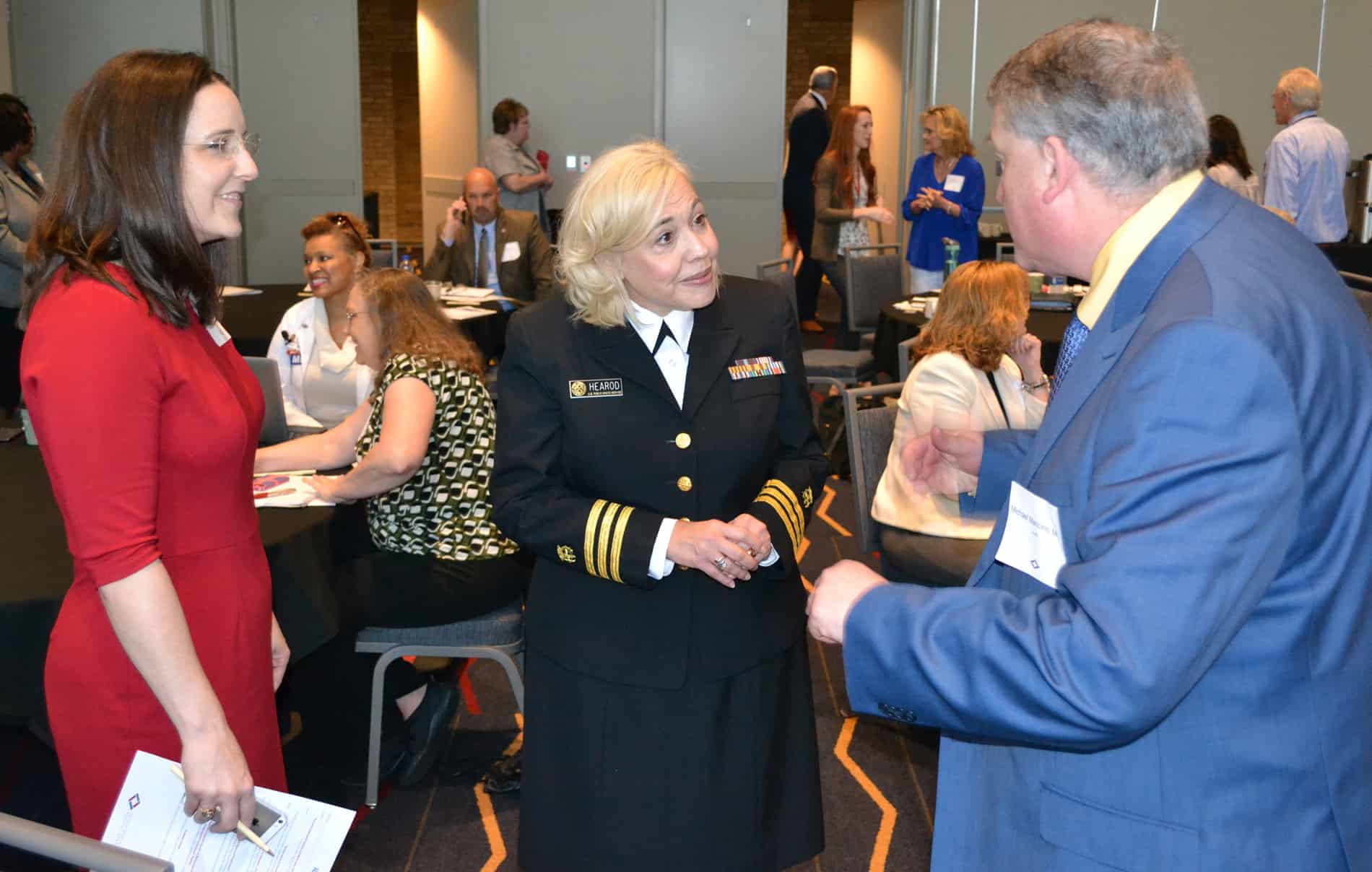Summit Focuses on Treatment Concerns for Opioid Abusers
| Representatives from a number of health-care organizations, academic facilities and governmental agencies attended a meeting May 17 at Little Rock’s Robinson Center designed to bring attention to treatment options for those dealing with opioid use disorder.
The Medication Assisted Treatment for Opioid Use Disorder Treatment Summit, sponsored by the Partnership for a Healthy Arkansas, featured experts in opioid addiction as well those who have a personal connection to the ever-increasing problem.
The Partnership for a Healthy Arkansas is a shared services organization formed by leading Arkansas health-care organizations to improve quality and lower costs for patients and providers. Members include Blue Cross Blue Shield, the University of Arkansas for Medical Sciences, St. Bernards Healthcare, Washington Regional and Baptist Health.
Like many of her colleagues, Karen Hearod, LCSW, was trained to believe that abstinence was the best method of treating those with addiction. The regional administrator for Region VI of the Substance Abuse and Mental Health Services Administration (SAMHSA), which includes Arkansas, Hearod said that medication-assisted treatment has been a challenge for that culture.
“Medication-assisted treatment and recovery is the secret sauce that we need to get people going in the right direction,” said Hearod, who detailed some of the educational resources her agency offers to those trying to help their patients overcome their addictions.
Part of the problem many physicians have when it comes to opioid abuse disorders is they focus on the fruit rather than trying to find the root of the problem, said Rhonda Mattox, M.D., an associate professor in the Department of Psychiatry at UAMS.
Research has shown that many Adverse Child Experiences (ACEs) have been linked to risky health behaviors, including opioid abuse, she explained. “So when you find out someone’s been exposed to trauma, your radar should go up and recognize this is someone at risk,” said Mattox, who argued that early recognition of ACEs could decrease the chances of those patients developing a dependency on opioids.
Michael Mancino, M.D., program director of UAMS’ Center for Addiction Services and Treatment, discussed how the MATRIARC (Medication Assisted Treatment Recovery Initiative for Arkansas Rural Communities) program and its offshoot, Project ECHO, provide medical professionals with assistance in treating patients with opioid use disorder.
“As a primary care physician, the easiest thing you’re going to do is prescribe buprenorphine (a medication used to treat opioid addiction). The part you’re going to struggle with is the behavioral issues,” Mancino said. MATRIARC, a partnership with UAMS’ Psychiatric Research Institute and the Arkansas Department of Human Services, provides medical personnel with access to a trained addiction specialist via a hotline maintained weekdays 8:30 to 4:30 p.m. “That’s why it takes a team.”
Paula Cunningham, RN, the manager of Medical Policy Administration at Arkansas Blue Cross/Blue Shield, shared the story of her son, Parker, who lost his battle with addiction in 2018 after numerous treatment attempts. Jimmy McGill had a similar story regarding his own addiction to drugs.
“I never saw a good home, a happy home until I broke into someone else’s,” admitted McGill, who suffered both physical and sexual abuse as a young boy and turned to drugs as a result. After several years in what he called “a self-imposed prison called addiction,” McGill, the State Targeted Response Recovery Program coordinator for the Arkansas State Drug Director’s office, is now sober and a certified peer recovery specialist.
“I got to experience the power of change,” McGill told the audience. “If you’re in this room today, you’re in a position to save a life.”
Blake Fagan, M.D., chief education officer for the Mountain Area Health Education Center in Asheville, N.C., showed how training medical students to both screen and treat patients with opioid use disorder had a positive effect on the addiction crisis in his state. Molly Gathright, M.D., an assistant dean for Graduate Medical Education with the UAMS College of Medicine, wrapped up the day by leading a discussion with the audience on the topics covered and their value to their home communities.
